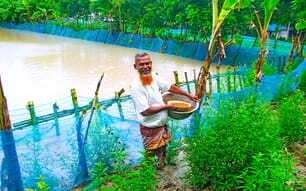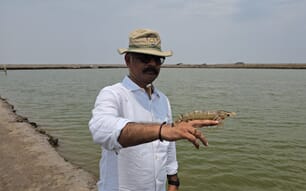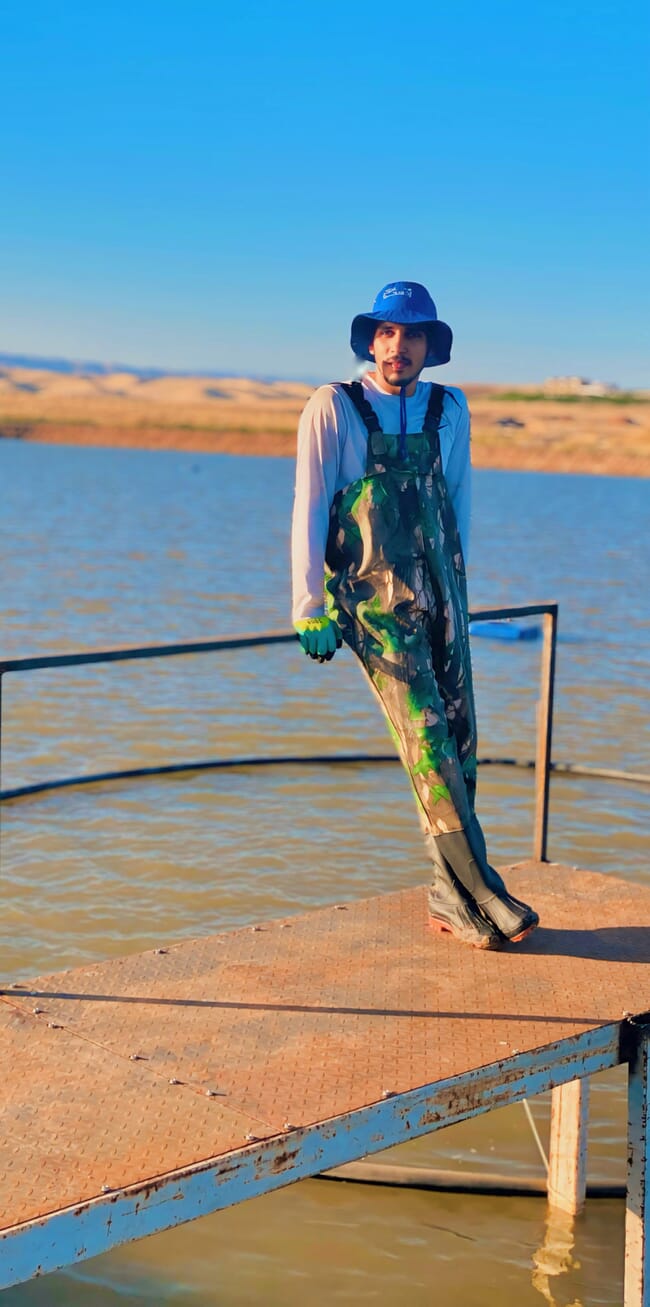
Can you briefly describe your aquaculture career?
I hold a BSc in aquaculture from Suez University in Egypt. I worked for four years as a supervisor at New Hope Egypt, overseeing operations at the company’s experimental farm and hatchery. I then moved to Kuwait, where I worked at Fast Control Farm, focusing on intensive aquaculture of carp, tilapia and Asian sea bass. Subsequently, I joined a tilapia farm and hatchery in Saudi Arabia, which had a production capacity of 400 tonnes per year. Currently, I serve as a fish farming specialist at Zain Al Mutaqadima for Feed Production Company, where I manage their common carp farm.
Can you provide an overview of your farm?
The farm specialises in semi-intensive common carp farming in 34 earthen ponds, each covering 5 dunams (1 dunam = 2,500 m²). Stocking density is maintained at 1,500 fish per dunam, equivalent to approximately one fish per 2.5 cubic metres of water. The farm targets an annual production of 500 to 600 tonnes, mainly for the local market, as Iraq's domestic fish production currently falls short of meeting national consumption needs. Fish grow to a market weight of 2 kg, starting from fingerlings that weigh between 5 and 20 grams. Fingerlings are sourced from certified, high-quality hatcheries. The farm utilises feed produced by Zain Al Mutaqadima Feed Production, a leading national supplier of all types of aquaculture feed, with which the farm is affiliated.
What have been the farm’s major milestones so far?
During the initial stages of production, we focused on both operating and gradually developing the rest of the farm. Despite utilising only 100 dunams at that time, we successfully achieved a production output of 200 tonnes.
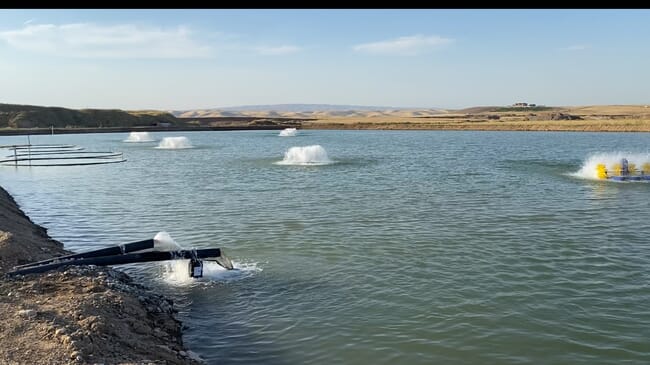
© Mohamed El Gendy
What are the main challenges you face in carp farming and how do you overcome them?
Koi herpesvirus (KHV) outbreaks can cause significant mortality among common carp and tends to spread during April, May, October and November. In addition, we face persistent issues related to water scarcity and the high cost of production, primarily due to inconsistent access to energy resources needed to operate the farms.
There are also concerns regarding the genetic purity of carp strains, with ongoing strain overlap affecting performance and health. We are actively working to address these challenges and are in the process of establishing a dedicated hatchery to ensure the consistent quality and disease-free status of the fry, along with implementing a vaccination programme for our broodstock
What does a typical day’s work consist of for you?
Our daily work follows a structured weekly plan, starting with determining the required feed quantities for the ponds, analysing water quality parameters, implementing preventive measures, disinfecting the ponds, assigning tasks to workers, and closely monitoring farm operations, both in the morning and evening
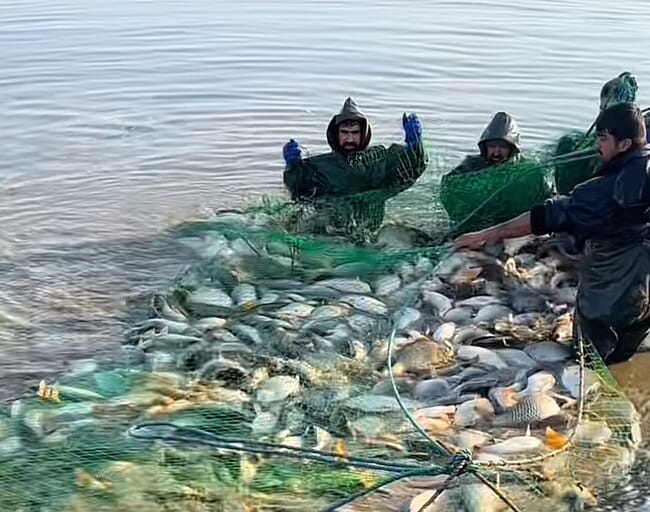
© Mohamed El Gendy
What are your longer-term ambitions?
At the farm level, my ambition is to help achieve the farm’s goals, as its success is a direct reflection of my own. This includes completing the remaining construction phases, such as finishing the development of the remaining ponds to utilise the farm’s full area and establishing an on-site hatchery.
In the longer term, I aspire to establish and manage my own flow-through farm, which will aim to reuse effluent water in agricultural irrigation.
What farming systems do you think should be expanded in Iraq?
In response to water scarcity, intensive aquaculture systems such as recirculating aquaculture systems (RAS) and biofloc have been considered promising solutions. However, in the case of common carp, RAS has proven to be inefficient under Iraqi conditions due to several practical limitations. Frequent power outages hinder the continuous operation of the systems, while the high organic waste load produced by carp tends to clog and damage filtration units. Therefore, the flow-through system remains the most suitable and sustainable option for carp farming in Iraq.
If you could solve one issue in the aquaculture industry, what would it be?
Addressing the issue of poor-quality fish fry, often resulting from unregulated hatchery practices, is essential for supporting local producers. Many farmers lack sufficient awareness or technical knowledge to fully understand the complexities of fish health and fry quality. Therefore, the goal is to assist farmers in accessing high-quality, disease-free fry that exhibit strong performance and resilience under local environmental conditions.
What is your vision for the development of the carp farming sector in Iraq in the coming years?
Iraq holds significant potential for advancing in aquaculture. Meaningful progress can be achieved if existing challenges are addressed and greater focus is placed on developing technical expertise and supporting research institutions.
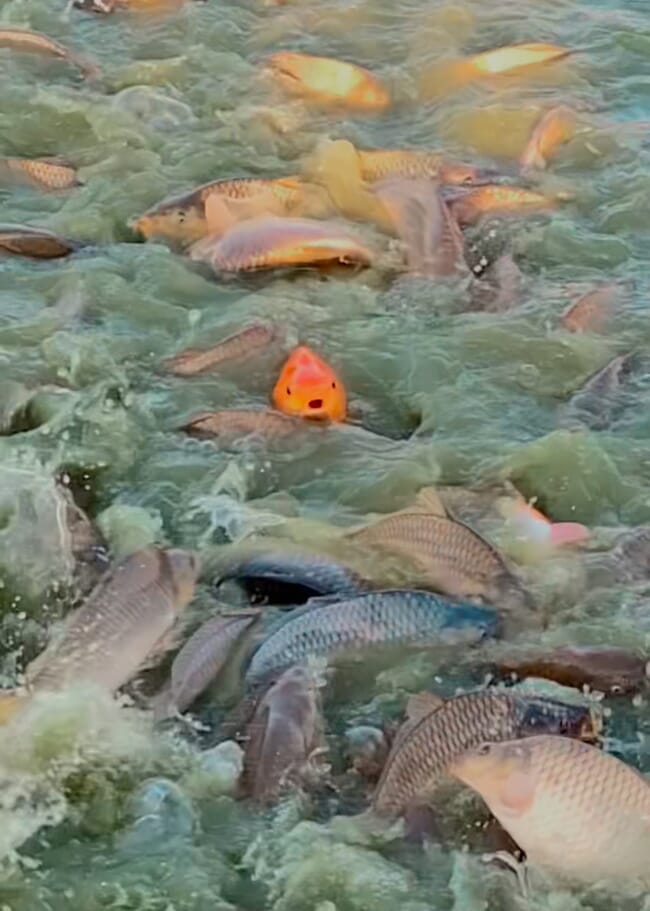
© Mohamed El Gendy


